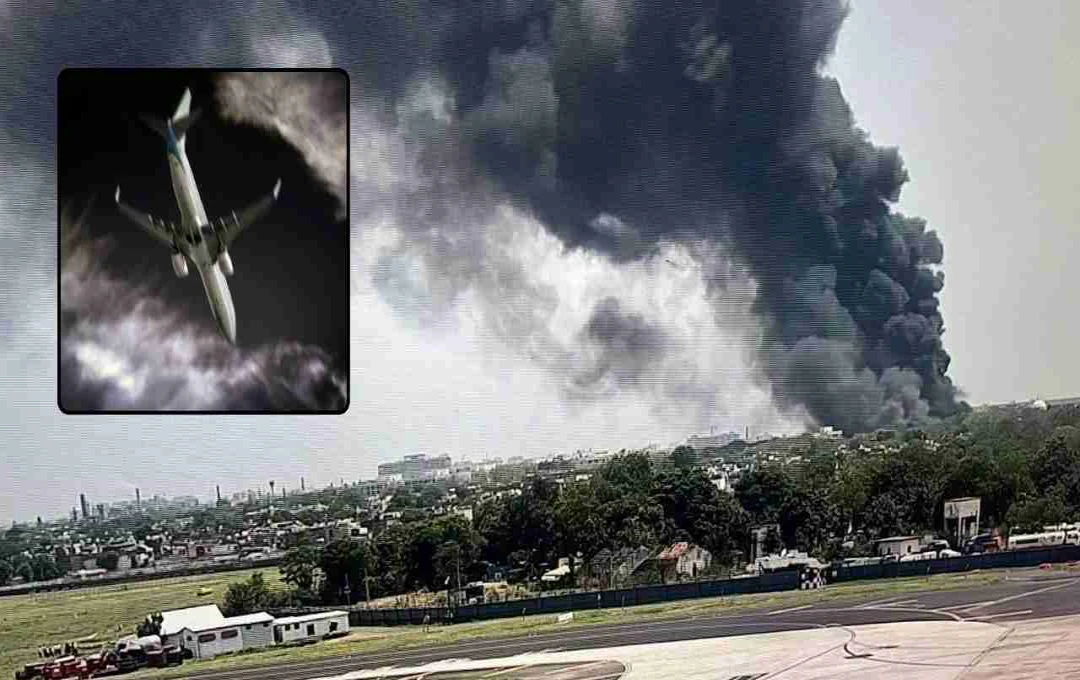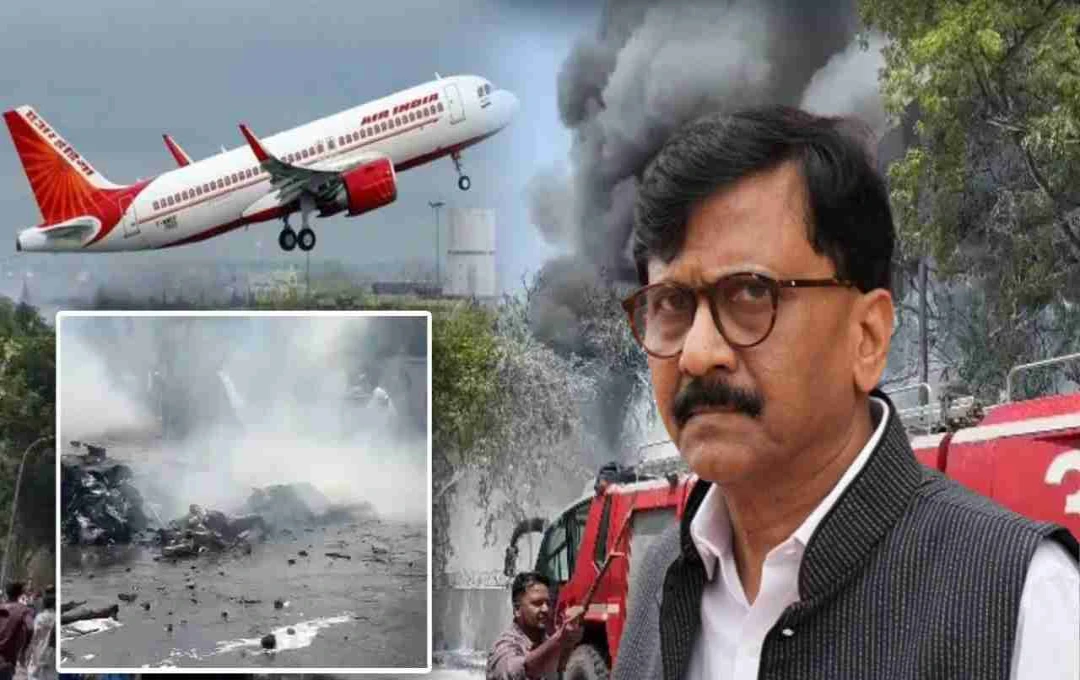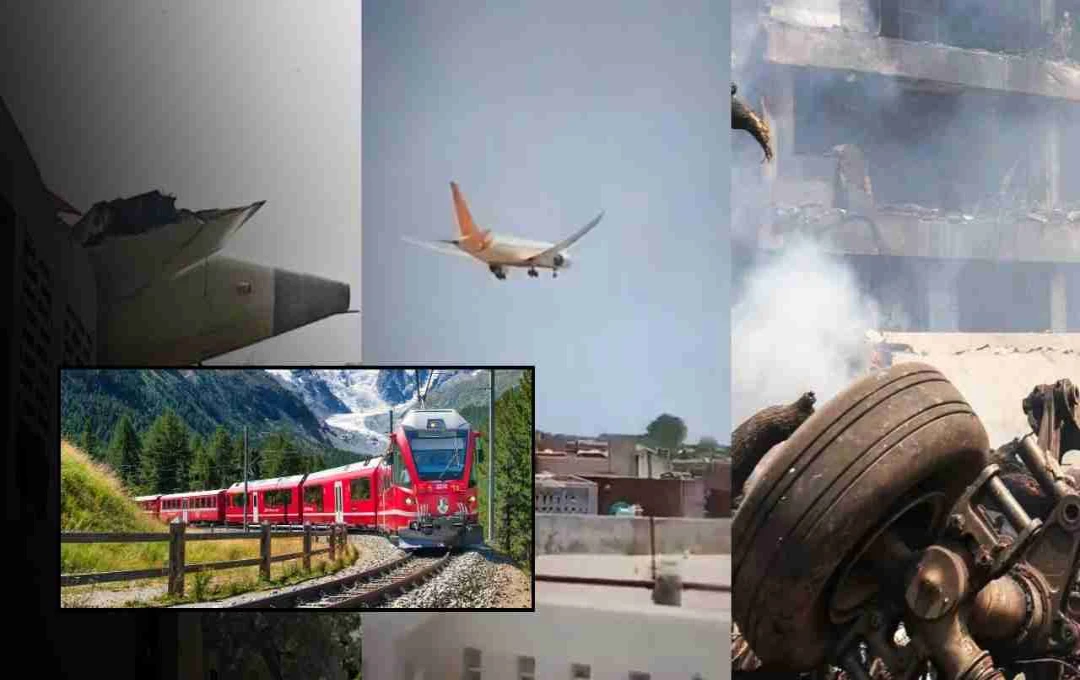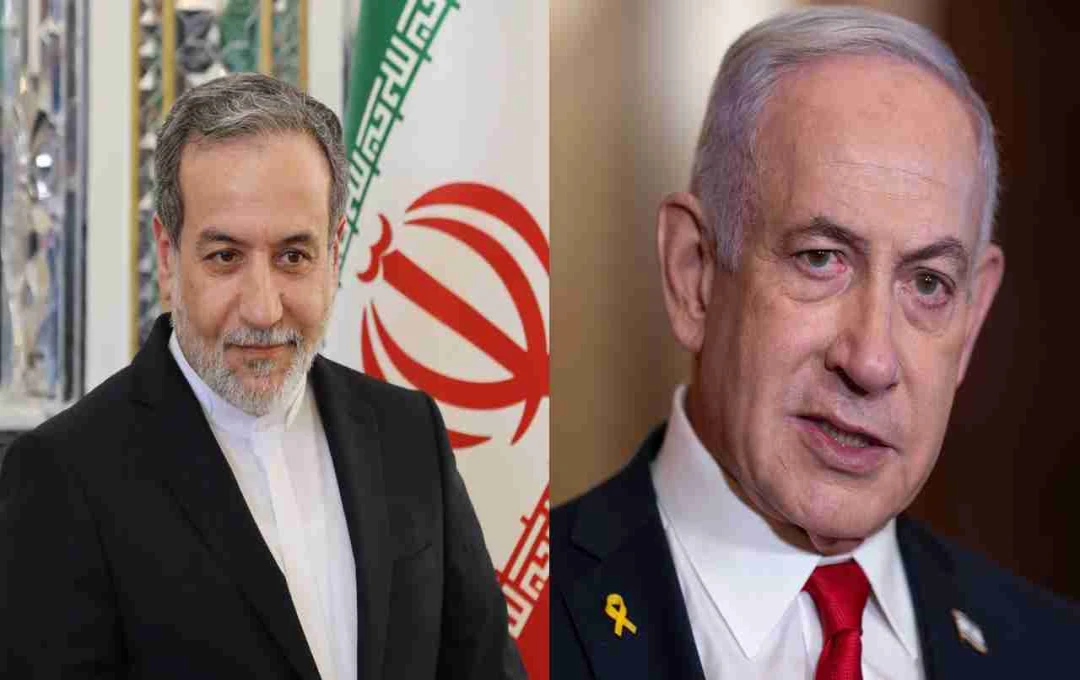Before a tragic plane crash in Ahmedabad on Thursday, the Air India flight pilot radioed the Air Traffic Control (ATC) three times, issuing a Mayday! Mayday! Mayday! call.
Ahmedabad: A deeply distressing accident occurred in the Ahmedabad sky on Thursday afternoon. An Air India flight, arriving from Delhi, crashed shortly before landing on the runway. This incident caused immense grief to many families, but another crucial aspect emerged – just before the crash, the pilot issued the emergency code word three times: Mayday! Mayday! Mayday!
While the phrase may seem short, its gravity is profound. It's a word no pilot ever wants to utter, signifying an uncontrollable situation, imminent danger, and a desperate plea for help.
Mayday: The Final Cry of a Distressed Aircraft
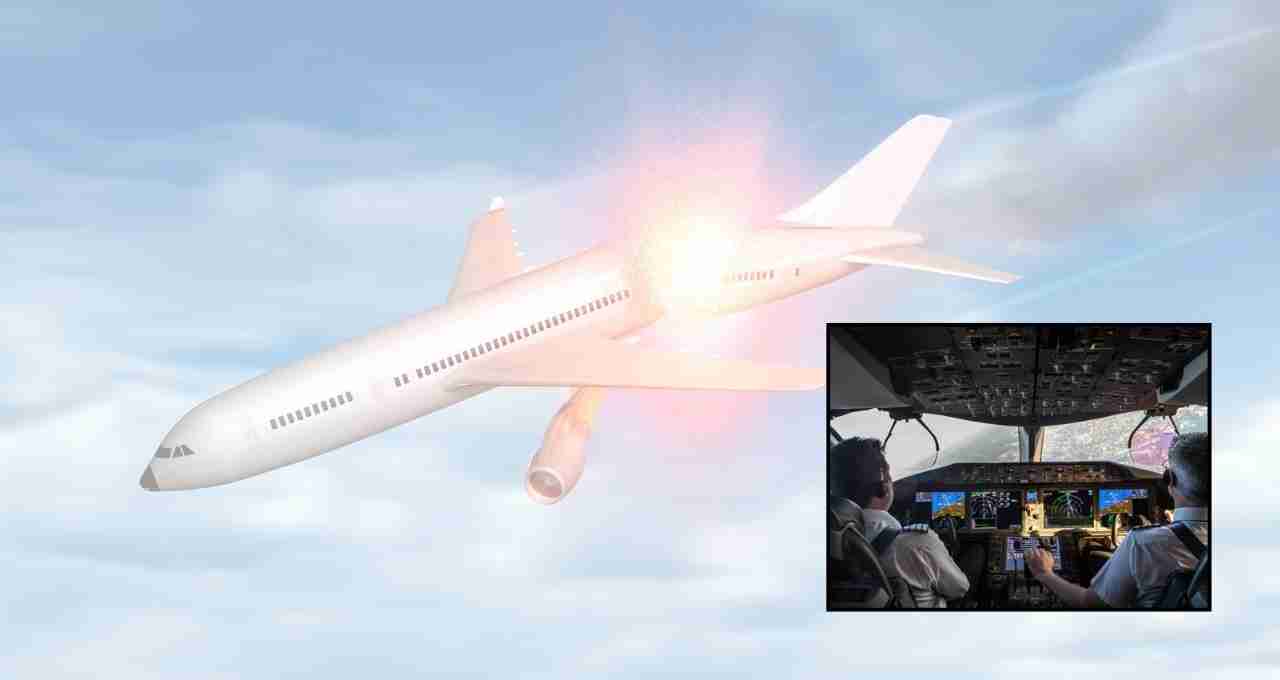
Mayday is an international emergency signal transmitted via radio by an aircraft, ship, or vehicle during a critical emergency. It indicates that the individual or crew has lost control of the situation and faces immediate life-threatening danger.
The word Mayday is repeated three times consecutively – Mayday! Mayday! Mayday! – to ensure clear identification amidst other radio traffic and avoid any confusion.
The Pilot's Call Before the Ahmedabad Crash
As the Air India flight approached Sardar Vallabhbhai Patel Airport in Ahmedabad, sudden b winds and reduced visibility emerged. The pilot attempted to manage the situation, but a few kilometers from the runway, engine failure and power loss were reported.
At that critical moment, the pilot immediately sent the distress signal to the ATC: Mayday! Mayday! Mayday!
The ATC immediately alerted the rescue team, but by the time help arrived, the aircraft had already impacted the ground. Several passengers sustained injuries, and two fatalities were confirmed.
Origin of Mayday: The World's Most Important Call from France
The Mayday signal originated in 1923. The person behind this crucial development was Frederick Mockford, a senior radio officer at Croydon Airport in London. At that time, the number of flights between London and Paris was increasing, and Mockford needed a word easily understood in both English and French.
He chose Mayday, inspired by the French phrase m'aidez (help me). Its pronunciation, similar to "May-day," was easy and clear for radio transmission.
In 1948, the word received international recognition as the official distress call.
Mayday Call Protocol
When a pilot issues a Mayday call, the following information is relayed in a specific order:
- Aircraft type and name
- Call sign (flight number)
- Nature of the emergency
- Current or last known location
- Current weather conditions
- Remaining fuel
- Number of people at risk
- Type of assistance required
Based on this information, the ATC or other rescue teams formulate their response strategy.
What is a Mayday Relay?
Sometimes, a distressed aircraft loses contact or its radio system malfunctions. In such cases, another passing flight relays the Mayday call on its behalf. This is called a Mayday Relay. This system proves crucial when an aircraft is in dire straits but unable to communicate directly.
Legal and Social Implications
In many countries, including the United States, the misuse of Mayday is a serious offense. False distress calls can result in up to six years imprisonment and a $250,000 fine.
Such calls not only waste rescue resources but can also delay assistance for those genuinely in need.
Examples of Mayday Calls in Indian Aviation
India has also witnessed previous instances of Mayday calls. In 2019, a private jet issued a Mayday call due to engine failure before landing at Mumbai airport. That same year, an IndiGo aircraft made a Mayday call after experiencing sudden technical malfunction in Bangalore, necessitating an emergency landing.
Such events demonstrate the effectiveness of this critical system in saving lives during emergencies.
Why is it Crucial for Pilots to Issue a Mayday?
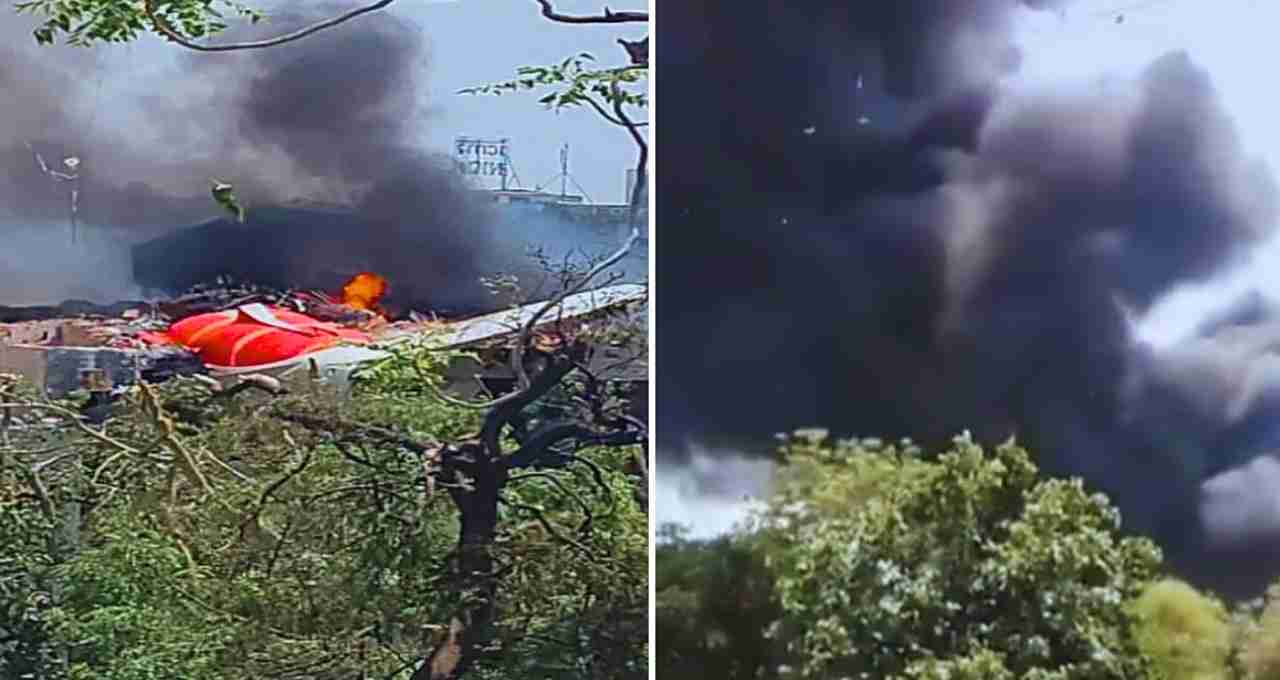
Pilots often try to resolve technical issues themselves until the very last moment. However, once the situation becomes unmanageable, issuing a Mayday call and seeking assistance becomes their responsibility.
This call:
- Allows rescue teams to prepare in advance
- Gives the airport time to clear the runway and prepare fire tenders
- Can make a significant difference in saving lives
Post-Ahmedabad Accident Situation
Ahmedabad airport authorities immediately launched a rescue operation. Firefighting units, ambulances, and medical teams were deployed. The DGCA and AAIB (Aircraft Accident Investigation Bureau) have initiated investigations.
Audio recordings of the Mayday call are being analyzed to understand the circumstances surrounding the call and whether any delays occurred in providing assistance.
